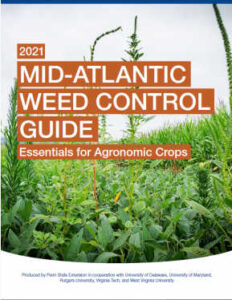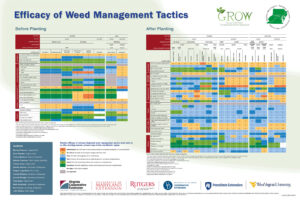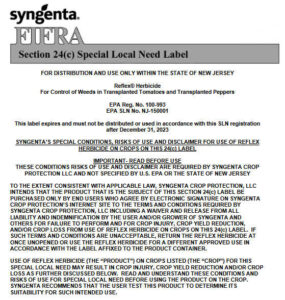
The 2021 updated version of the “Mid-Atlantic Field Crop Weed Management Guide” is available. This guide is produced by Penn State Extension in cooperation with weed scientists from University of Delaware, University of Maryland, Rutgers University, Virginia Tech, and West Virginia University.
The guide covers weed management for field corn, sorghum, soybean, small grains, and forage and pastures. Information concerning the use, restrictions, and recommendations of burndown, preemergence, and postemergence herbicides labeled on these crops can be found in the guide, including relative effectiveness data from locally conducted research. Description of the various premixes as well as guidance for managing troublesome weeds are also part of the guide.
The guide can be ordered on-line at https://extension.psu.edu/mid-atlantic-field-crop-weed-management-guide. Available to order are the paper copy for $10, the digital guide for $8, or both a hard copy and pdf for $18.




